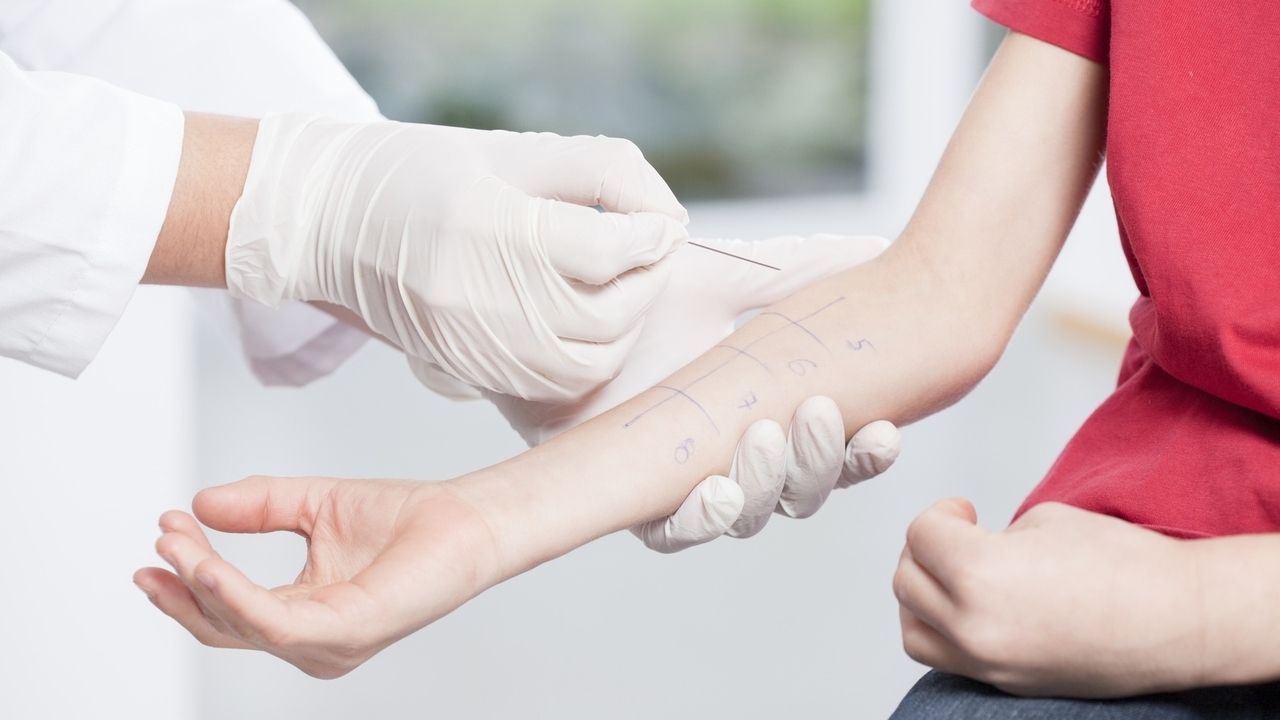Numerous children have severe allergies that can lead to emergency situations. Approximately 6 million children have food allergies, but some children are also allergic to other substances such as pollen, pet dander or dust mites.
Schedule an Appointment with an Allergist
If you suspect that your child has an allergy, then visit an allergist for an examination and testing. Some types of allergic reactions are severe, leading to respiratory difficulties, seizures or death. It is essential for an allergist to perform blood and skin prick tests to determine exactly what your child is allergic to so that she won’t have a health complication.
Notify a School’s Staff and Caregivers
Have the allergist create a medical document concerning your child’s allergies so that you can provide this information to a school’s staff and caregivers. It is vital for a school to know if a child is severely allergic to foods such as nuts so that everyone knows what to do if an allergic reaction occurs.
Order an Emergency Medical Bracelet
If your child has a severe allergy, then make sure that she wears an emergency medical bracelet. When your child has a dangerous allergic reaction, anyone nearby can notice what the problem is by reading the bracelet. Not only should the bracelet list what your child is allergic to, but also, it should have an emergency telephone number that paramedics can contact for additional information concerning your child’s medical issues.
Have Your Child Carry Medication
When your child has a dangerous allergy, she must learn how to prevent a reaction. Your child should carry medication with her everywhere so that she can administer it when an allergic reaction occurs. In addition to injectable medications, there are also medications that a child can inhale to stop an allergic reaction.
Learn How to Avoid Allergic Reactions
To avoid allergic reactions, learn more about what triggers a breathing problem or seizure. This may mean that your daughter can’t go to certain places that serve foods that contain peanuts. Before visiting restaurants or other locations, you may need to contact the management to determine if there are allergens on-site.
Take Medications to Prevent Allergic Reactions
Remain in contact with your child’s allergist to determine if there are medications that can prevent a reaction. In addition to antihistamines and breathing treatments, scientists are developing new treatments that can prevent a reaction when someone is exposed to an allergen.
Following the tips here can help you prevent disaster by keeping your child safe from allergies. It’s hard to defend against the unknown though. Taking your child to an allergist like the Oak Brook Allergists or someone similar is a critical step, even if you already know your child has allergies. This type of specialist can tell you the full extent of your child’s allergies, which will help you defend against them. Remember that even with severe allergies, you can help your child to lead a full, happy, and normal life.
All user-generated information on this site is the opinion of its author only and is not a substitute for medical advice or treatment for any medical conditions. Members and guests are responsible for their own posts and the potential consequences of those posts detailed in our Terms of Service.





Add a Comment1 Comments
Hello Kara,
Welcome to EmpowHER.
Thank you for sharing.
Maryann
November 3, 2017 - 8:31amThis Comment